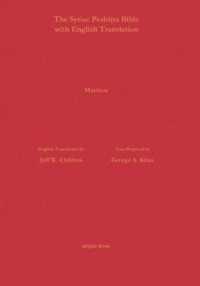Description
The Second Edition of Ordinary Differential Equations: An Introduction to the Fundamentals builds on the successful First Edition. It is unique in its approach to motivation, precision, explanation and method. Its layered approach offers the instructor opportunity for greater flexibility in coverage and depth.
Students will appreciate the author’s approach and engaging style. Reasoning behind concepts and computations motivates readers. New topics are introduced in an easily accessible manner before being further developed later. The author emphasizes a basic understanding of the principles as well as modeling, computation procedures and the use of technology. The students will further appreciate the guides for carrying out the lengthier computational procedures with illustrative examples integrated into the discussion.
Features of the Second Edition:
- Emphasizes motivation, a basic understanding of the mathematics, modeling and use of technology
- A layered approach that allows for a flexible presentation based on instructor's preferences and students’ abilities
- An instructor’s guide suggesting how the text can be applied to different courses
- New chapters on more advanced numerical methods and systems (including the Runge-Kutta method and the numerical solution of second- and higher-order equations)
- Many additional exercises, including two "chapters" of review exercises for first- and higher-order differential equations
- An extensive on-line solution manual
About the author:
Kenneth B. Howell earned bachelor’s degrees in both mathematics and physics from Rose-Hulman Institute of Technology, and master’s and doctoral degrees in mathematics from Indiana University. For more than thirty years, he was a professor in the Department of Mathematical Sciences of the University of Alabama in Huntsville. Dr. Howell published numerous research articles in applied and theoretical mathematics in prestigious journals, served as a consulting research scientist for various companies and federal agencies in the space and defense industries, and received awards from the College and University for outstanding teaching. He is also the author of Principles of Fourier Analysis, Second Edition (Chapman & Hall/CRC, 2016).
Table of Contents
The Basics. The Starting Point: Basic Concepts and Terminology. Integration and Differential Equations. First-Order Equations. Some Basics about First-Order Equations.Separable First-Order Equations. Linear First-Order Equations. Simplifying Through Substitution. The Exact Form and General Integrating Factors. Slope Fields: Graphing Solutions Without the Solutions. Euler’s Numerical Method. The Art and Science of Modeling with First-Order Equations. Second- and Higher-Order Equations. Higher-Order Equations: Extending First-Order Concepts. Higher-Order Linear Equations and the Reduction of Order Method. General Solutions to Homogeneous Linear Differential Equations. Verifying the Big Theorems and an Introduction to Differential Operators. Second-Order Homogeneous Linear Equations with Constant Coefficients. Springs: Part I. Arbitrary Homogeneous Linear Equations with Constant Coefficients. Euler Equations. Nonhomogeneous Equations in General. Method of Undetermined Coefficients. Springs: Part II. Variation of Parameters.The Laplace Transform. The Laplace Transfrom (Intro). Differentiation and the Laplace Transform. The Inverse Laplace Transform. Convolution. Piecewise-Defined Functions and Periodic Functions. Delta Functions. Power Series and Modified Power Series Solutions. Series Solutions: Preliminaries. Power Series Solutions I: Basic Computational Methods. Power Series Solutions II: Generalizations and Theory.Modified Power Series Solutions and the Basic Method of Frobenius. The Big Theorem on the Frobenius Method, with Applications. Validating the Method of Frobenius. Systems of Differential Equations (A Brief Introduction). 35. Systems of Differential Equations: A Starting Point. Critical Points, Direction Fields and Trajectories.







